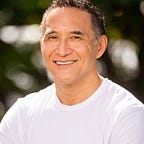Kustomer — day one to scale and exit to Meta/Facebook 🐲
…or how two technical founders from Long Island disrupted incumbents in the massive customer support market
👏🏼 💪🏼 Huge congrats to co-founders Brad Birnbaum, Jeremy Suriel and the entire Kustomer team on their exit to Meta.
There’s nothing sweeter than to see the Kusty vision scale even bigger 📈 to the many thousands of business customers on Messenger, WhatsApp, Instagram and more.
We are truly 🙏🏼 to Brad and Jeremy for taking a bet on boldstart as a co-lead in their initial round at company formation with our friends at Social Leverage (Gary Benitt, Howard Lindzon) and angel Alex Bard. We’re also thrilled to have invested in every round since company formation. There were lots of lessons learned during this journey but a 🔑 one was the team’s unwavering focus on their product north 🌠 and vision. Unlike new category creation, going after existing incumbents in a huge market requires founders to build to feature parity before even having the opportunity to sell a bigger and unique vision. What we underestimated was how long it would take us to get there but once we did, the customers responded quite well.
We first met Brad and Jeremy in the summer of 2015 through Jeff Leventhal (friend, advisor and former boldstart partner) as they were thinking about reinventing support with a customer, not ticket-centric, data model. After 20 years working together in the customer service space as a competitor to one of my former investments, LivePerson, and then as co-founders of Assistly (sold to Salesforce) they were ready to go big. 5 minutes into our first meeting, I remember Eliot, Jeff, and I looking at each other knowing we could not let them out of the room without a term sheet. While it took a couple of days to come to an agreement as they had to incorporate, here’s the initial problem statement and solution from their initial deck that got us so excited.
While a subtle detail, the unique insight that Brad and Jeremy had was to build a data architecture where the Kustomer is the atomic unit versus the ticket. With that change, customer support reps could better understand their customer no matter where the ticket was created from email to chat to Facebook to voice. Data was no longer siloed based on how a customer communicated with the company. In addition, by starting with an integration with purchasing data, Kustomer would come out of the gate with a holistic view of the customer and wedge to further expand into customer analytics and automation (read more on The Race to Own Customer Data).
The other big innovation was the Kustomer timeline which was modeled after the Facebook timeline and allowed a customer service rep to quickly and easily find information on any customer in a modern, beautiful UI. The importance of great and intuitive design was not lost on the Kustomer team from day 1 and they made a number of iterations throughout the years. While not as slick looking in 2015, here’s how the Kustomer timeline looks today.
Finally, we can’t forget the importance of the cloud, microservices, and containers as Jeremy and team were at the forefront of the latest and greatest in web scale infrastructure.
6 years later many of these same messages and themes from the initial deck continue to resonate (from the official Meta/Facebook blog post).
Kustomer is an omnichannel CRM platform that brings customer conversations from various channels together into a single-screen view. It helps businesses automate repetitive tasks so their agents can maximize the time and quality of interactions with customers. Facebook plans to support Kustomer’s operations by providing the resources it needs to scale its business, improve and innovate its product offering, and delight its customers. That way, more people will benefit from customer service that is faster, richer and available whenever and however they need it, whether it’s phone, email, web chat or messaging.
We are amazed at all that the Kustomer team has accomplished and are thankful for having the opportunity to play a small role in helping it go from idea and whiteboard to scale. It’s been an incredibly fun journey, and we’re going to miss all of those amazing dinners and get togethers along with our regular Saturday morning calls and chats over the years! We’re also going to miss our co-investors, board members and friends we made along the way like Gary Benitt (Social Leverage), Alex Bard and Tomasz Tunguz (Redpoint), Neeraj Agrawal and Logan Bartlett (Battery/former Battery), Thomas Laffont and Sebastian Duesterhoeft (Coatue), Deepak Kamra (Canaan), John Curtius (Tiger), Wendi Sturgis and many more.
Brad and Jeremy embody all of the characteristics that we at boldstart look for in founders on day one when no product is even built. First and foremost, we look for great human beings, full of empathy and caring. Secondly, we like to partner with mission-oriented founders pursuing a lifelong passion which in their case was reinventing the customer support experience. Thirdly, we ❤️ underdogs and Brad and Jeremy were discounted early on as unknown founders from Long Island despite having significant experience in the customer support space. Finally, we look for a unique insight born out of pain and a technical ability to build which they had in spades.
👏🏼 💪🏼 to the Kustomer team for being boldstart’s first 🐲 or portfolio company which returns the whole fund, and we look forward to the Kusty team doing great things with Meta!
